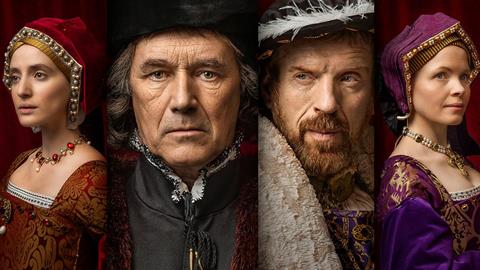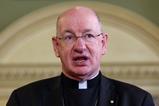Whether historically accurate or not, the BBC’s Wolf Hall gives us an insight into the events that surrounded the greatest schism in Church history. It is a timely reminder of the importance of Christian unity, says Tony Wilson

With the BBC dramatisation of Wolf Hall reaching its conclusion, we can take a moment to look back at the richness of this remarkable production. Quite apart from being an outstanding piece of historical storytelling, the two seasons have given us a fascinating insight into the early decades of the Reformation played out across Europe.
Wolf Hall: The mirror and the light, adapted from the original trilogy by Hilary Mantel, charts the efforts made to secure the succession of Henry VIII, largely told from the perspective of Thomas Cromwell, chief minister to the king.
Martyrs are rare creatures even if their persecutors are more easily found
Director Peter Kosminsky set out to break the period drama mould by crafting something that was both historically faithful and utterly modern. The use of candles and firelight created a sense of political intrigue and menace in dark corners. Add gripping screenplay, stunning costumes and wonderful filming locations and it’s no wonder season one picked up BAFTAs and Golden Globes for best drama series and best leading actor for Mark Rylance as Thomas Cromwell.
Mantel, raised in Catholic family but choosing atheism as an adult, said that Wolf Hall is fundamentally anti-Catholic, but I don’t find it so - at least in the form that made it to our TV screens. The drama is much more nuanced than this and deserves closer examination.
Across the ages
The historical events play out as the Reformation gathers pace across Europe. We find characters on both sides of the growing divide as the Church is riven in two. Thomas More, a Catholic and Renaissance humanist (whose story is more sympathetically told in Robert Bolt’s play A Man For All Seasons) is portrayed as being only too eager to prosecute his cause with torture and execution.
Historians actually find no case to answer in this regard - so we can only speculate whether Mantel calls this correctly. Taking a principled position against the king as he sought to annul his marriage to Catherine of Aragon and marry Anne Boleyn, More held fast to the authority of the pope in matters spiritual. He paid with his life and is now recognised as a martyr for the faith.
Thomas Cromwell took a firmly Protestant position, but we see him to be an equally compromised mix of good and bad. He too falls from favour by the end of season two and is executed for treason.
Divided we fall
Undoubtedly, fault lay on both sides of the Reformation. As modern Christians, we often make the mistake of projecting our own beliefs back into history. Protestants can think that the Reformation was won by the strength of the self-evident truth of its theology. Catholics are guilty of the same confirmation bias.
The truth is much more interesting and confounding. The Europe of Wolf Hall is a maelstrom of political instability, with nation states jockeying for power. England is particularly vulnerable with a disputed line of succession and so, all means are used to stablise the situation. Similarly, continental Europe, largely holding a Catholic position, establishes treaties that threaten to unseat the English crown.
In this context, faith allegiances become a shibboleth, a convenient way to sift the faithful citizens from those guilty of treason. The truth claims - or otherwise - of the Reformation are largely irrelevant to those pulling the levers of power in the English privy council. If the Reformation advanced the cause of the Crown, then so be it.
This isn’t to say that faithful men and women, both Catholic and Protestant, were without conscience. Many martyrs went to their death for both sides. But for most people, in most times, it is easier to keep your head down and go along with whichever power play is in the ascendancy. Martyrs are rare creatures even if their persecutors are more easily found.
Repairing the wounds
The truth claims held by Christians of all denominations are important; they demand to be taken seriously and weighed carefully. However, fidelity to historic Christianity had little to do with whichever form of our faith won the day in the nations of Europe.
We often make the mistake of projecting our own beliefs back into history
We can take comfort that much is being done to repair the wound our forebears inflicted on the Body of Christ. Even across the last few decades, we have seen a rapprochement and a growing respect across the divide that once drove us to kill in the name of the Prince of Peace.
And every step towards healing the wounds moves us closer to the fulfilment of the prayer of Jesus recorded in John 17:20-23: “I ask not only on behalf of these but also on behalf of those who believe in me through their word, that they may all be one. As you, Father, are in me and I am in you, may they also be in us, so that the world may believe that you have sent me. The glory that you have given me I have given them, so that they may be one, as we are one, I in them and you in me, that they may become completely one, so that the world may know that you have sent me and have loved them even as you have loved me.”
It’s mission critical.































No comments yet